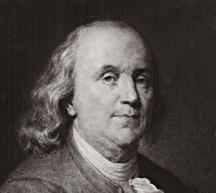 |
| Edward Snowden |
 |
| Daniel Ellsberg |
 incompetence of G. Gordon Liddy in retaliating against Ellsberg led to the formation of his "Plumbers Squad" which culminated in the Watergate Scandal and the resignation of Richard M. Nixon. We are all familiar with the charges against Julian Assange, Chelsea Manning and most recently Edward Snowden. All villified in the press and and charged with crimes against the state in leaking embarrassing information which has only ultimately changed the public debate and led to reforms that are curbing abuses. This is all about the abuse of power and the access we the people have to power is knowledge. Leakers give us the knowledge for us to regain our power as the people! I'd like to recount another case of leaking that was called traitorous at the time, but ultimately the outcome proves my point about the balance of secrecy and power.
incompetence of G. Gordon Liddy in retaliating against Ellsberg led to the formation of his "Plumbers Squad" which culminated in the Watergate Scandal and the resignation of Richard M. Nixon. We are all familiar with the charges against Julian Assange, Chelsea Manning and most recently Edward Snowden. All villified in the press and and charged with crimes against the state in leaking embarrassing information which has only ultimately changed the public debate and led to reforms that are curbing abuses. This is all about the abuse of power and the access we the people have to power is knowledge. Leakers give us the knowledge for us to regain our power as the people! I'd like to recount another case of leaking that was called traitorous at the time, but ultimately the outcome proves my point about the balance of secrecy and power.The case I’m referring to has nothing to do with WikiLeaks, Assange, Snowden or Manning. Called the Hutchinson Letters Affair, it began in December, 1772 when Benjamin Franklin, who was in England at the time, anonymously received a packet of thirteen letters. They were reports by Thomas Hutchinson, the lieutenant governor of the Province of Massachusetts Bay, to Thomas Whately, a leading member of the British government. In the letters, Hutchinson made
 |
| Free Chelsea Manning |
Understanding the inflammatory nature of these letters, Franklin circulated the letters to his American friends and colleagues but on the condition that they not be published. Clearly in the public interest, at least from the point-of-view of American revolutionaries, the letters were published, in defiance of Franklin’s request, in the Boston Gazette in June of 1773.
As you can imagine, the patriotic citizens of Boston were furious, and in May 1774 Hutchinson fled the colony back to England before he could be tarred and feathered. As the American colonies were on the edge of rebelling against the authority of the Crown, this could easily have triggered a revolution, and while it didn’t, it certainly provided the insurgents with ammunition in their fight against England.
Having been severely embarrassed and having had its interests in the American colonies compromised, the British government set out to discover who leaked the letters. In December of 1773, three men were charged, two of whom fought a duel over the matter and were preparing to do so again. As it turned out, they had nothing to do with the Hutchinson letters, and in a letter to the London Chronicle, Franklin confessed: “Finding that two gentlemen have been unfortunately engaged in a duel, about a transaction and its circumstance of which both are totally ignorant and innocent, I think it incumbent on me to declare (for the prevention of farther mischief, as far as such a declaration may contribute to prevent it) that I alone am the person who obtained and transmitted to Boston the letters in question.” However, he refused to say who gave him the letters
Obviously more benign than the US government of the twenty-first century, Benjamin Franklin was not locked up and held in solitary confinement, as was the case with Manning Bradley, or threatened by charges of espionage, like Assange.
On January 29, 1774, Franklin was hauled up before the Privy Council to explain why he had leaked letters in the ‘Hutchinson Affair’. He was accused of thievery and dishonor, called the “prime mover” of Boston’s insurgents and charged with being a “true incendiary”. Throughout the hearing, Franklin maintained a dignified silence. For his disloyalty to the Crown, he Privy Council held off sending Franklin the gallows or even sentencing him to an afternoon in the stocks. Instead, Solicitor General Alexander Wedderburn was satisfied with the tongue-lashing he meted out to Franklin and the next day the Board of Trade dismissed Franklin from his post as Deputy Postmaster General of the North America colonies.
 |
| Benjamin Franklin Traitor of his time, Hero of today! |
Had the Espionage Act been in place in Great Britain in 1774, Franklin would not have been around to lead the War of Independence, nor would he have been around to raise vital funds to support the rebellion and we would not have seen his signature on the Declaration of Independence or the United States Constitution.
No comments:
Post a Comment